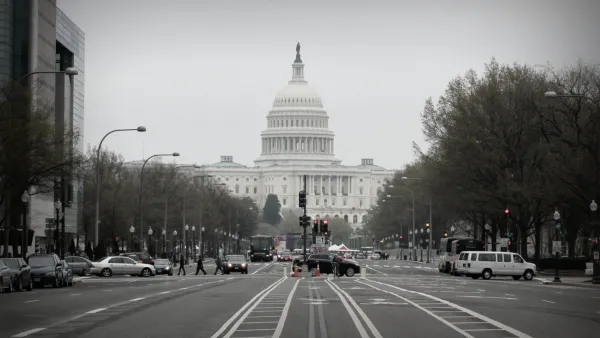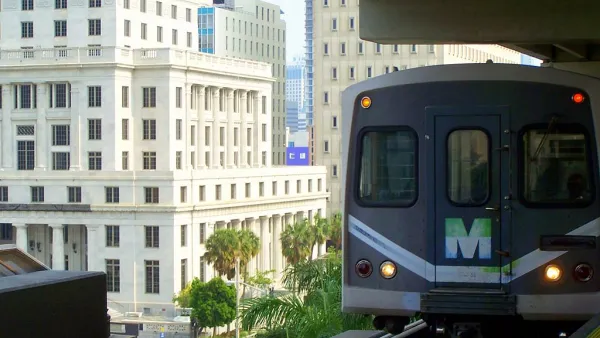A new economic stimulus package that appears headed for approval as of this writing will give $15 billion to public transit, far less than transit advocates had hoped, but far better than nothing.

Kea Wilson writes: "Congress is racing to pass a coronavirus relief bill that would throw transit agencies across the country a life raft — but as the saying goes, we’re going to need a bigger boat."
The COVID-19 Emergency Relief Act of 2020, as the new relief package is called, is a long time coming. The federal government approved its last stimulus package, the CARES Act, in March, and let another stimulus package called the HEROES Act, approved by the House of Representatives in May, languish in the Senate.
According to Wilson, the Emergency Relief Act of 2020 "would grant $15 billion to mass transportation agencies to be distributed on the basis of Federal Transit Administration formulas, restricting each urbanized area to a maximum of $4 billion. "No large city can receive more than 75 percent of its 2018 operating budget from the grants, and experts don’t expect there to be much left over after every small agency gets its initial cut," adds Wilson.
For transit agencies facing an existential crisis because of plummeting revenues of all kinds (sales and gas tax revenues are down in addition to fare receipts), the new funding will provide only a temporary relief, as mentioned by Wilson in the lede.
As noted by Wilson, advocates were hoping for funding on the order of $32 billion to help transit agencies weather the storm. Jeff Davis of the Eno Center for Transportation is quoted in the article saying that the funding should get "everyone" through March 31. A Tweet by Yonah Freemark also provides a breakdown of the expected allotments to specific transit agencies.
OK, revised estimates suggest that the new COVID Act should provide agencies:
- NY MTA ~$2.5-4b
- CTA ~$305m
- WMATA ~$530m
- NJT ~$305m
- MBTA ~$500-650m
- SEPTA ~$350m
(The 75% rule applies to *both* CARES & the new COVID Act--this will free up money for MTA, MBTA)— Yonah Freemark (@yfreemark) December 15, 2020
FULL STORY: New COVID-19 Relief Bill Starves Transit — Again

Analysis: Cybertruck Fatality Rate Far Exceeds That of Ford Pinto
The Tesla Cybertruck was recalled seven times last year.

National Parks Layoffs Will Cause Communities to Lose Billions
Thousands of essential park workers were laid off this week, just before the busy spring break season.

Retro-silient?: America’s First “Eco-burb,” The Woodlands Turns 50
A master-planned community north of Houston offers lessons on green infrastructure and resilient design, but falls short of its founder’s lofty affordability and walkability goals.

Test News Post 1
This is a summary

Analysis: Cybertruck Fatality Rate Far Exceeds That of Ford Pinto
The Tesla Cybertruck was recalled seven times last year.

Test News Headline 46
Test for the image on the front page.
Urban Design for Planners 1: Software Tools
This six-course series explores essential urban design concepts using open source software and equips planners with the tools they need to participate fully in the urban design process.
Planning for Universal Design
Learn the tools for implementing Universal Design in planning regulations.
EMC Planning Group, Inc.
Planetizen
Planetizen
Mpact (formerly Rail~Volution)
Great Falls Development Authority, Inc.
HUDs Office of Policy Development and Research
NYU Wagner Graduate School of Public Service




























